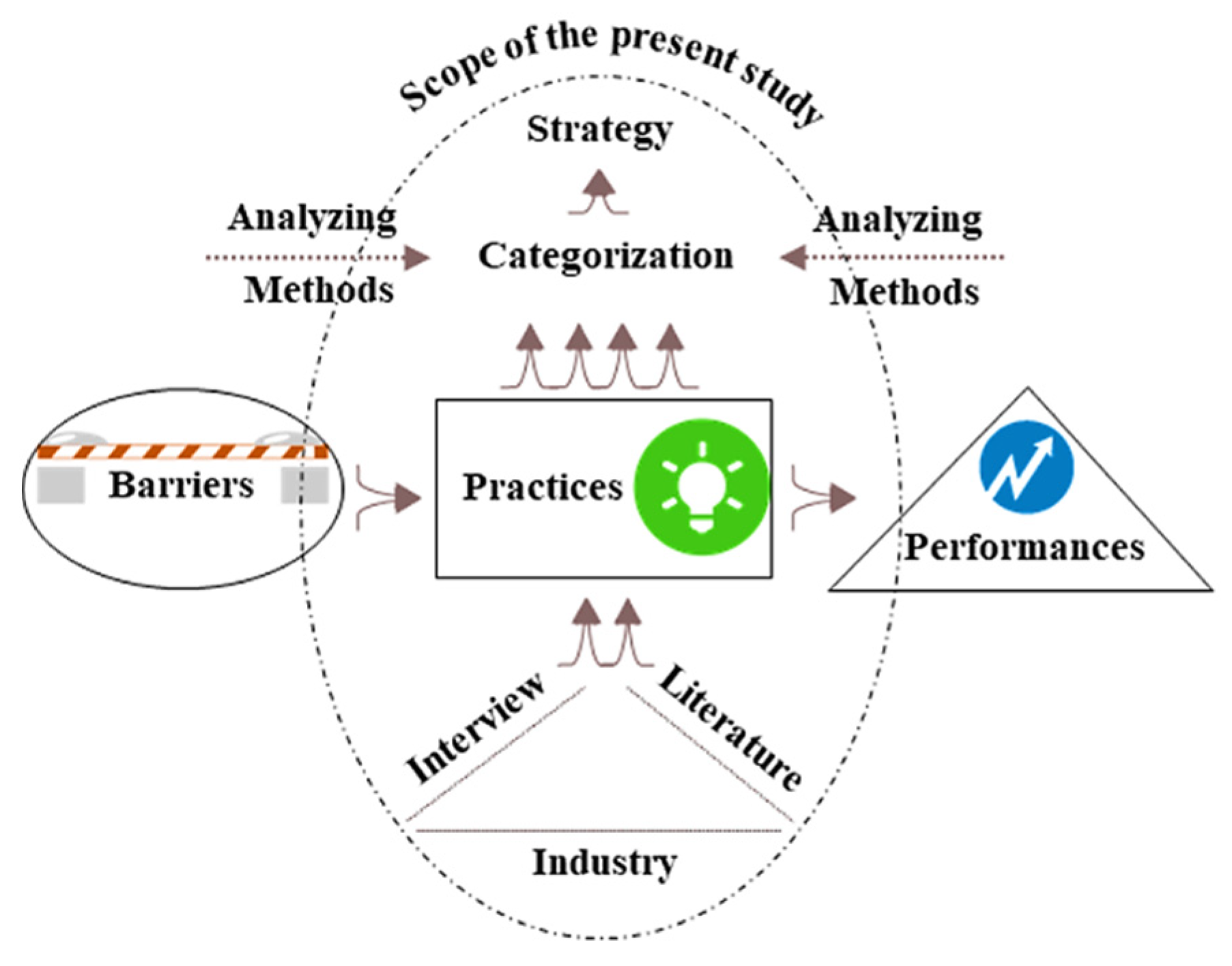A Diploma in Supply Chain Management in Bangladesh equips individuals with the essential knowledge and skills to optimize supply chain operations. This program provides a comprehensive understanding of procurement, logistics, and inventory management.
Pursuing a Diploma in Supply Chain Management can be a transformative step for professionals aiming to excel in the fast-growing field of logistics and supply chain in Bangladesh. The curriculum typically covers key areas such as strategic sourcing, supply chain analytics, demand planning, and the role of information technology in supply chain efficiency.
This educational route is designed for those seeking to strengthen their understanding of global supply chain networks and improve their ability to plan and manage complex supply and distribution systems. The practical skills gained from such a diploma are highly valued by employers in manufacturing, retail, and service industries. Graduates emerge as adept problem solvers, ready to tackle the challenges of today’s dynamic and interconnected marketplaces.
Introduction To Supply Chain Management In Bangladesh
Growing Importance In The Economy
The Bangladeshi economy is expanding. This growth brings a higher need for skilled SCM professionals. They ensure that products move smoothly from factories to consumers. SCM is now central to businesses in sectors like garments, pharmaceuticals, and agriculture.- Increased efficiency in product delivery
- Reduced costs through effective resource management
- Better customer satisfaction with timely supply of products
Potential Career Paths With A Diploma
A diploma in SCM opens doors to many job roles. Graduates can pursue careers in various areas.| Career Path | Role Description |
|---|---|
| Logistics Coordinator | Manage the movement of goods |
| Inventory Manager | Oversee stock levels and orders |
| Supply Chain Analyst | Analyze data to improve SCM processes |

Credit: www.facebook.com
Exploring Diploma Options
Institutions Offering The Program
Bangladesh hosts several reputable institutions:- Bangladesh Institute of Management (BIM) – Known for its practical approach.
- BRAC University – Offers a comprehensive blend of theory and practice.
- University of Dhaka – Renowned for academic excellence.
- Ahsanullah University of Science and Technology – Focuses on technological integration.
- Daffodil International University – Provides an industry-oriented curriculum.
Online Vs. In-person Learning Formats
Select the learning format that fits your lifestyle:| Online Learning | In-Person Learning |
|---|---|
| Flexibility to learn from anywhere | Face-to-face interaction with peers |
| Self-paced course work | Structured schedule |
| Virtual collaboration tools | On-site facility benefits |
| Accessible to a global cohort | Immediate feedback from instructors |
Curriculum Breakdown
Core Supply Chain Principles
Understanding the foundations is critical. The curriculum covers key areas:- Inventory Management: Keeps stocks at optimal levels.
- Procurement Processes: Ensures purchasing efficiency.
- Logistics: Manages the flow of goods.
- Supply and Demand Planning: Balances market needs and supply.
Specialized Courses And Electives
After grasping basic principles, students can choose from varied electives. These include:- Global Supply Chain Management: Deals with international logistics.
- Supply Chain Risk Management: Teaches how to mitigate risks.
- Strategic Sourcing: Focuses on improving purchasing activities.
The Admissions Process
Entry Requirements
Before applying, understanding the entry requirements is essential. These prerequisites vary depending on the institution.- Minimum education: Higher Secondary Certificate (HSC) or equivalent.
- Work experience: Some institutions prefer applicants with relevant work history.
- Language proficiency: Proficiency in both English and Bengali is often required.
- Age limit: Certain programs may have age restrictions.
Tips For A Successful Application
Next, focus on crafting a strong application to secure your place. Consider the following tips for a successful submission:- Gather all documents: Prepare transcripts, certificates, and letters of recommendation.
- Follow instructions: Each institution’s application process may have unique steps.
- Personal statement: Write a compelling statement to stand out from the crowd.
- Proofread: Check for errors to ensure a professional application.
Funding Your Education
Scholarship Opportunities
Scholarships act as a beacon of hope, lighting the path to higher education for deserving students. Fortunately, institutions and organizations in Bangladesh offer scholarships based on merit and need. Explore the following options:- Merit-based Scholarships: Rewarding academic excellence, these scholarships can cover partial or full tuition fees.
- Need-based Scholarships: Designed for students with financial hurdles, ensuring everyone has a chance to learn.
- Women in Logistics Scholarships: Specifically for aspiring female supply chain professionals, promoting gender diversity.
Financial Aid And Payment Plans
Financial aid programs and flexible payment plans are within your reach, making education affordable and manageable. Consider these points:| Program | Description |
|---|---|
| University Financial Aid | Custom aid packages offered by educational institutions based on the student’s circumstances. |
| Government Grants | Grants provided by the government to uplift the education sector and assist students financially. |
| Payment Plans | Structured installment plans allowing students to pay tuition over time rather than in a lump sum. |
The Student Experience
Campus Life In Bangladesh
Bangladesh offers a unique campus experience for SCM students. It’s a blend of cultural diversity and academic vigour. Modern facilities meet traditional values to create an inspiring learning atmosphere. Students enjoy a mix of classroom learning and practical, hands-on exercises.- Interactive workshops and seminars
- Group projects that foster teamwork
- Sports events to stay active and engaged
Networking And Student Organizations
Networking shapes the spine of a supply chain management career. Institutions in Bangladesh emphasize this by encouraging students to join student organizations and professional societies. These platforms offer unparalleled access to industry experts and alumni.| Organization | Benefits |
|---|---|
| SCM Student Club | Leadership skills, team projects |
| Logistics Association | Industry insights, guest lectures |
| Business Society | Entrepreneurial spirit, real-world challenges |
Faculty And Mentorship
Learning From Industry Experts
This program boasts a cadre of seasoned professionals leading its courses. Each instructor brings a wealth of experience, ensuring the curriculum reflects current industry practices. With a blend of academic vigor and real-world expertise, these experts guide students through complex supply chain concepts.- Real-world Case Studies: Instructors use recent examples from their professional work.
- Interactive Sessions: Learn through lively discussions and hands-on exercises.
- Up-to-Date Knowledge: Stay abreast with the latest trends and technologies in supply chain management.
Mentorship Opportunities
Unique to this program is the focus on mentorship. Students connect with industry veterans and leaders, gaining essential career guidance. Mentors act as bridges between theory and practice, helping students navigate their early careers. Key highlights include:- One-on-One Sessions: Personalized advice tailored to your career goals.
- Networking Events: Meet professionals and build valuable industry connections.
- Project Guidance: Collaborate with mentors on real world projects to refine your skills.
Internships And Practical Training
Gaining Real-world Experience
Completing an internship is a career-defining step for diploma students. It offers a glimpse into the daily operations of supply chain management. Internships allow students to apply theoretical knowledge in real-world scenarios. They tackle projects and understand the intricacies involved in maintaining effective supply chains.- Work on live supply chain problems
- Develop practical skills crucial for job readiness
- Experience diverse aspects of the supply chain
Building A Professional Network
Internships serve as a gateway to building professional relationships. Students interact with industry professionals and peers. This networking is invaluable for future job searches and career growth.| Networking Benefits | Description |
|---|---|
| Industry Contacts | Meet experts and leaders in supply chain management |
| Job Opportunities | Learn about job openings through new connections |
| Mentorship | Gain guidance and insights from experienced mentors |
Technology In Supply Chain Education
Leveraging Software And Tools
Incorporating advanced software aids students in understanding real-world SCM scenarios. Educational institutions use simulations and supply chain analytics tools to offer hands-on experience. Here’s how technology integration is shaping SCM education:- Inventory Management Software: Helps students grasp stock control efficiently.
- ERP Systems: Provide practical insights into enterprise-wide operations.
- Data Analytics Tools: Enable analysis of supply chain performance.
The Role Of E-commerce In Curriculum
E-commerce has dramatically shifted the SCM landscape. A diploma in SCM in Bangladesh now encompasses e-commerce fundamentals to equip students with necessary skills. Coursework highlights include:- Digital inventory optimization techniques.
- Online order fulfillment processes.
- Cross-border logistics and regulations.

Credit: www.facebook.com
Industry Partnerships And Collaboration
Collaborating With Local Businesses
Through strategic alliances with local companies, students acquire hands-on experience. They engage in projects that apply classroom learning to business challenges. These partnerships include:- Internships – allowing students to work within firms.
- Live Case Studies – teams solve real company issues.
- Guest Lectures – industry experts share insights.
International Exchange Programs
Diploma students can also participate in international exchange programs. These programs foster a global perspective in supply chain management. Benefits include:- Global Networks – connections with students and professionals worldwide.
- Cultural Competence – skills to work in diverse environments.
- Best Practices – learning from leading international SCM systems.
Case Studies And Project Work
Analyzing Real Supply Chain Challenges
Case studies put students in front of actual supply chain issues. They study events from companies within Bangladesh and globally. This hands-on approach helps identify problems and craft strategies.- Assessing marketplace trends
- Improving logistics plans
- Managing risk in supply chains
Applying Theory To Practical Scenarios
Project work allows students to use their knowledge in controlled environments. They devise solutions to challenges and gain feedback from industry experts. This gives a taste of the industry’s demands.- Designing distribution networks
- Optimizing inventory control
- Streamlining procurement processes
Graduation And Certification
Meeting The Requirements
To graduate with a diploma in supply chain management, students must complete a series of steps. Each step ensures that graduates are well-prepared for the challenges of the supply chain sector.- Complete all courses: Participants have to pass every class in the curriculum.
- Practical experiences: Internships or hands-on projects are crucial.
- Final assessments: Exams, projects, or thesis work demonstrate expertise.
The Value Of Accreditation
The quality of education significantly impacts a graduate’s career opportunities. Accreditation is a testament to the standard of the program and institution. Graduates from accredited schools gain:| Acknowledgment | Advantage |
|---|---|
| Global recognition | Job opportunities increase worldwide |
| Industry acceptance | Qualifications are respected by employers |
| Higher standards | Ensures rigorous academic quality |
Job Market Insights
Emerging Sectors In Bangladesh
Bangladesh’s economy is evolving. New industries are emerging, fueling demand for supply chain experts. Key growth areas include:- E-commerce: Online retail surges, heightening logistics roles.
- Manufacturing: Global companies invest here, needing supply chains.
- Retail: Modern retail spaces increase, expanding distribution networks.
Salary And Growth Projections
Supply Chain Management diploma holders witness promising salary trends. The table below outlines potential growth:| Experience Level | Expected Salary |
|---|---|
| Entry-Level | BDT 20,000 – 30,000 |
| Mid-Level | BDT 35,000 – 60,000 |
| Senior-Level | BDT 65,000+ |
Crafting Your Resume And Professional Identity
Crafting Your Resume and Professional Identity is vital for making a striking impression in the competitive job market of Bangladesh. A Diploma in Supply Chain Management can open doors to numerous opportunities. Yet, it’s how you present this credential that really matters. Below, learn how to showcase your educational background and tailor your experiences to stand out to potential employers.
Highlighting Diploma Credentials
Your diploma is a testament to your dedication and expertise in supply chain management. Make sure it stands out on your resume. Use bold formatting to draw attention to your qualification. List relevant coursework or projects that align with the job you desire. Consider adding a professional summary at the top of your resume, clearly stating your qualification and how it benefits your career aspirations.Tailoring Your Experience For Employers
Understand what employers in the supply chain sector are seeking. Customize your resume to reflect the skills and experiences that match the job description. Use bullet points to concisely demonstrate how your past roles or internships are relevant to the position you’re applying for. Emphasize achievements with quantifiable results, such as efficiency improvements or cost savings, which are particularly persuasive in supply chain roles.Interview Preparation And Techniques
Mock Interviews And Feedback
Mock interviews sharpen your skills. They mimic real interviews. Use them to practice. Feedback is gold. It points out strengths and areas to improve.- Dress as you would for the real deal.
- Prepare answers to common questions.
- Analyze your body language.
- Request feedback from peers or mentors.
Understanding The Employer’s Perspective
Grasp what the employer seeks. It boosts your chances. Research the company. Know their values. Understand their supply chain needs. Show how you match their requirements. Tailor your responses. Prove your value.| Research Area | Action |
|---|---|
| Company Culture | Exhibit matching values. |
| Supply Chain Challenges | Discuss solutions. |
| Role Dynamics | Connect your skills. |
Transitioning Into The Workplace
Entry-level Positions To Target
Knowing where to start is crucial for diploma holders. Below are prime positions that pave the pathway:- Inventory Coordinator: Keep track of stock levels.
- Purchase Assistant: Aid in buying materials.
- Warehouse Supervisor: Oversee storage operations.
- Logistics Analyst: Analyze supply chain data.
- Customer Service Representative: Manage client relations.
Advancing From Academic To Professional Life
Fresh graduates face challenges in applying theoretical knowledge to practical scenarios. A smooth transition entails:- Building a Solid Network: Connect with industry professionals.
- Continual Learning: Embrace on-the-job training.
- Adapting to Workplace Culture: Understand company norms and values.
- Time Management: Prioritize tasks effectively.
- Problem-Solving: Apply critical thinking to address issues.
| Area | Advice |
|---|---|
| Resume | Highlight internships and relevant projects. |
| Interviews | Research common questions and practice answers. |
| First Day | Show eagerness to learn and collaborate. |
Continuing Education And Lifelong Learning
Upskilling And Certifications
Continuous learning offers a competitive edge. To stay ahead, professionals must upskill. Certifications play a crucial role. They demonstrate commitment and proficiency in supply chain management. Acquiring specialized certifications can benefit careers significantly. These may include:- Certified Supply Chain Professional (CSCP)
- Certified in Production and Inventory Management (CPIM)
- Certified in Logistics, Transportation and Distribution (CLTD)
Master’s Programs And Further Specialization
For deeper expertise, consider a master’s program. Many institutions in Bangladesh offer programs dedicated to logistics and supply chain management. These programs often include:| Program Type | Specialization Areas | Duration |
|---|---|---|
| MBA in Supply Chain Management | Strategic Procurement, Global Logistics | 1-2 Years |
| Master of Science in Supply Chain Management | Quantitative Analysis, Supply Chain Planning | 1-2 Years |

Credit: www.mdpi.com
Alumni Success Stories
Inspiring Career Trajectories
The stories of our esteemed alumni demonstrate a rise to the top echelons of supply chain management. With a strong foundation provided by the diploma program, graduates have ascended to roles such as Supply Chain Analysts, Logistics Managers, and even C-suite executives at leading companies.- Masud Rana, now a Logistics Manager at a multinational corporation;
- Farzana Akhtar, who became a Procurement Strategist for a renowned retail chain;
- Tariq Mahmood, currently excelling as Chief Operating Officer in a tech startup.
How The Diploma Shaped Their Paths
Each alumnus credits their success to the comprehensive curriculum and hands-on experience they gained. Skill sets honed in areas such as procurement, operations management, and logistics strategy have been crucial for their impressive career growth.| Name | Position | Skills Gained |
|---|---|---|
| Masud Rana | Logistics Manager | Logistics Planning, Inventory Management |
| Farzana Akhtar | Procurement Strategist | Negotiation, Supplier Relations |
| Tariq Mahmood | Chief Operating Officer | Project Management, Strategic Planning |
Challenges And Opportunities In Supply Chain Management
Adapting To Market Trends
Keeping pace with market trends is essential for success in supply chain management. In Bangladesh, there’s a need for professionals to understand and respond to both local and global market movements. Here’s how they’re doing it:- Market Analysis: Students learn to dissect market reports. They apply this knowledge to forecast demand.
- Flexibility: Courses emphasize the ability to adapt strategies quickly in response to changes.
Innovations And Sustainability Initiatives
Today’s supply chain sector requires a forward-thinking approach to stay competitive. Here’s a peek into the blend of innovation and sustainability:- Technology integration: Digital tools streamline operations.
- Eco-friendly practices: Diploma courses highlight the importance of green logistics.
Conclusion: Your Next Steps
Evaluating Personal Goals And Aspirations
Understanding your career vision is crucial before diving into this field. Consider your interests:- Leadership roles:
- Operational efficiency:
- Global business impact:
Mapping Out Your Journey In Supply Chain Management
Start with clear milestones:- Choose the right institution.
- Learn from industry experts.
- Gain practical experience through internships.
Frequently Asked Questions For Diploma In Supply Chain Management In Bangladesh
What Is A Supply Chain Management Diploma?
A diploma in Supply Chain Management is an educational program designed to provide students with foundational knowledge and skills related to the logistics, procurement, and coordination of materials and goods.
How Long Does The Scm Diploma Take In Bangladesh?
Typically, a diploma in Supply Chain Management in Bangladesh can be completed within 1 to 2 years, depending on the institution and study format.
Are Scm Diplomas In Bangladesh Expensive?
The cost of a Supply Chain Management diploma in Bangladesh varies by institution, but it is generally considered affordable compared to similar programs abroad.
What Jobs Can Scm Diploma Holders Get?
Graduates with an SCM diploma can secure roles like procurement specialist, inventory coordinator, supply chain analyst, or logistics manager within various industries.
Which Institutes Offer Scm Diplomas In Bangladesh?
Prominent institutes in Bangladesh offering diplomas in Supply Chain Management include the Bangladesh Institute of Management and the Institute of Business Administration, among others.
Conclusion
Securing a diploma in supply chain management can pave the way for career growth in Bangladesh. It offers practical skills and deep industry insights. As the global marketplace expands, this education becomes invaluable for ambitious professionals. Jumpstart your journey in this dynamic field today—Bangladesh awaits your expertise.









